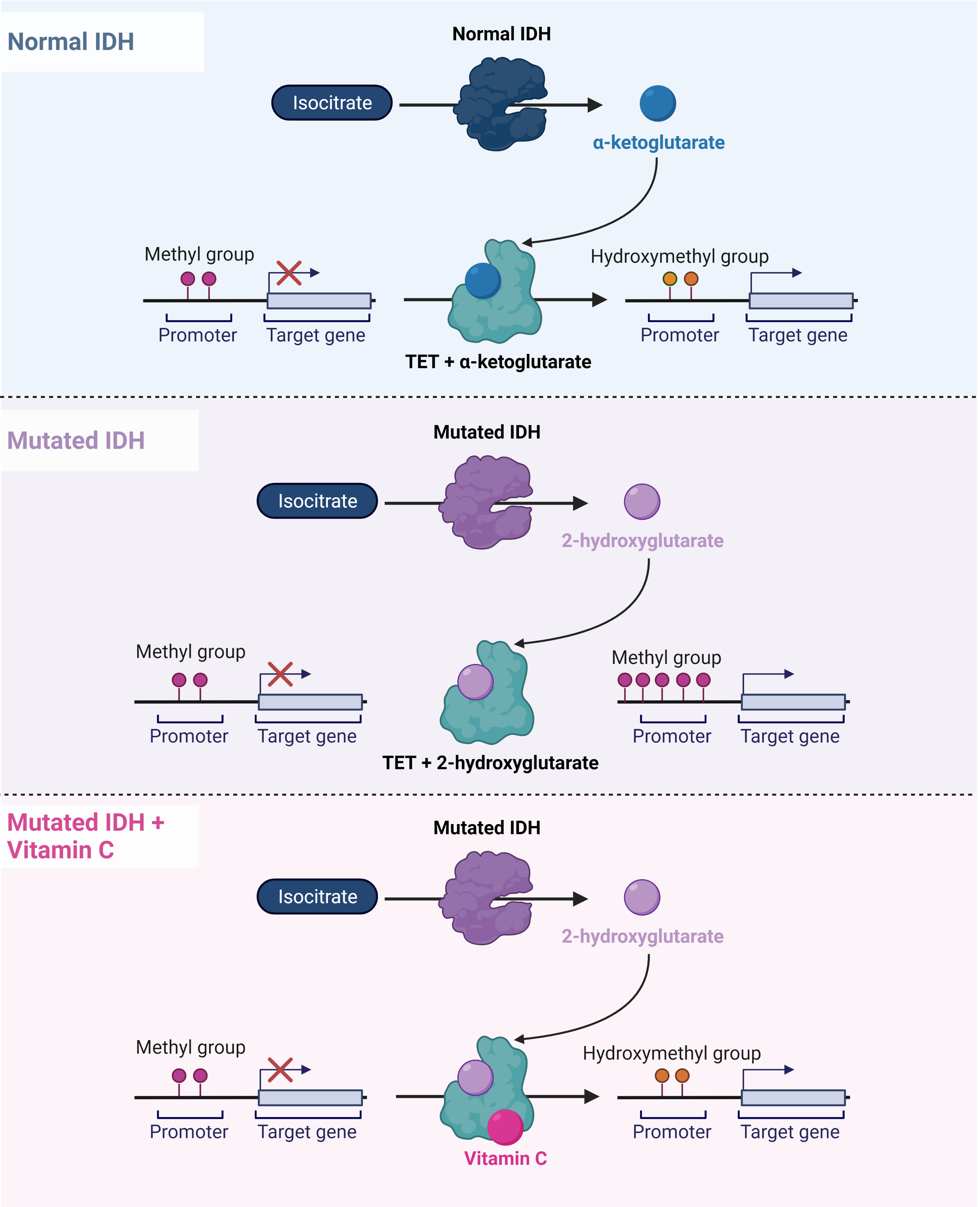Acute myeloid leukemia (AML) is an aggressive cancer that manifests in the bone marrow and affects the production of blood cells, and can be characterized by specific epigenomic abnormalities. The Hirst lab aims to better understand the role of epigenetic deregulation in the initiation and progression of AML. His research group is further investigating treatment with vitamin C given early evidence indicating that it has the ability reprogram AML epigenomes.
Some of the epigenetic deregulation seen in the genomes of AML patients can be attributed to mutations in the genes TET2 and IDH1/2. Normal IDH is an enzyme that produces α-ketoglutarate. Normal TET2 is an enzyme that then uses α-ketoglutarate to initiate demethylation of DNA. TET2-initiated DNA demethylation leads to the activation of genes required for the proper maturation and function of myeloid cells.
The mutated form of IDH in AML patients, however, converts α-ketoglutarate to the oncometabolite 2-hydroxyglutarate, the accumulation of which inhibits the DNA demethylation initiated by TET2 and leads to deregulation of genes required for myeloid cell maturation and function.
The Hirst lab has shown that treatment of IDH-mutant leukemic cells with the essential nutrient vitamin C, a known cofactor for TET2, can reprogram the epigenome, enhancing DNA demethylation and restoring myeloid cell gene expression. Dr. Hirst’s research group is investigating the potential utility of vitamin C as a non-toxic treatment strategy for AML.

Funding:
This research has long been supported by The Lotte and John Hecht Memorial Foundation through a Canadian Cancer Society Innovation Grant in 2015, a Terry Fox New Frontiers Program Project Grant in 2018, and a Michael Smith Foundation for Health Research Post-Doctoral Fellowship in 2020.
Publications:
M Mingay, A Chaturvedi, M Bilenky, Q Cao, L Jackson, T Hui, M Moksa, A Heravi-Moussavi, R K Humphries, M Heuser, M Hirst. 2018. Vitamin C-induced epigenomic remodelling in IDH1 mutant acute myeloid leukaemia. Leukemia. 32(1):11-20.
Blaschke K, Ebata KT, Karimi MM, Zepeda-Martinez JA, Goyal P, Mahapatra S, Tam A, Laird DJ, Hirst M, Rao A, Lorincz MC & Ramalho-Santos M. 2013. Vitamin C induces Tet-dependent DNA demethylation and a blastocyst-like state in ES cells. Nature. 500:222-226.